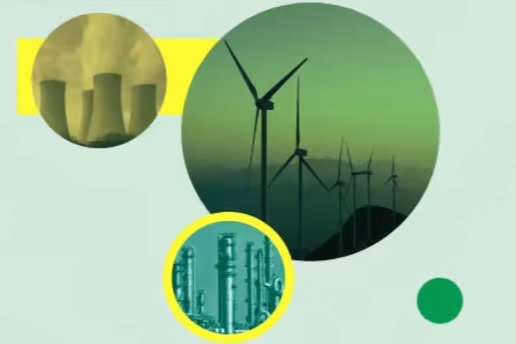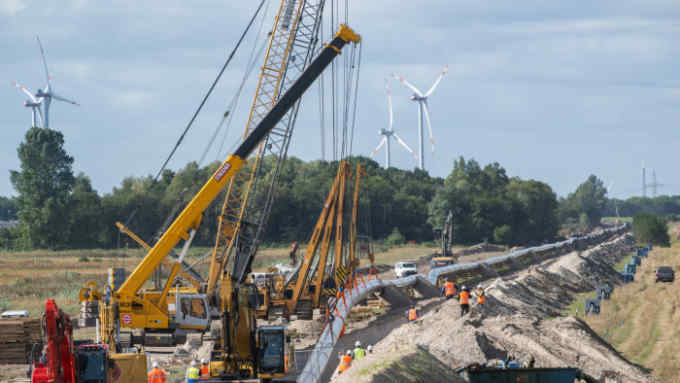France sets course for a nuclear renaissance

Roula Khalaf, Editor of the FT, selects her favourite stories in this weekly newsletter.
As Europe’s energy crisis and climate concerns swing momentum back behind nuclear power, the plans to build new reactor plants in France should have been a boost for an industry emerging from two decades of political reproval and dried up order books.
Instead, France’s nuclear renaissance, one of the most ambitious of the revivals contemplated by a growing number of governments, has been fraught with concerns. Critics question whether constructors still have the knowhow to build reactors and deliver them on time, and whether they can find enough people to get the work done.
“We’d been told for years: please, prepare yourselves to shut reactors,” Jean-Bernard Lévy, the outgoing chief executive of state-controlled French nuclear site operator EDF, told a conference in Paris in August. He was flanked by a government minister as he delivered his rebuke and warned of a lack of qualified construction staff.
“Clearly, we didn’t hire people to build 12 reactors, we hired people to dismantle them,” he noted.

France had been Europe’s nuclear energy champion for some time. A wave of plant construction between the 1970s and 90s gave the country its 56 reactors still standing today, before political and public sentiment began to waver.
Opposition to atomic power, including from some environmentalists because of the difficulty in disposal of the most toxic nuclear waste, has since weighed heavily on the sector. It only began to be cast in a favourable light again in recent years thanks to one of its key attributes: low carbon emissions.
Nuclear energy made a comeback at the COP26 environment summit in Glasgow last year, in discussions between world leaders over how to switch from fossil fuels. Russia’s invasion in Ukraine in February, which exacerbated spikes in power prices as Europe scrambled to wean itself off Russian gas, then brought energy security back on the table in dramatic fashion.
At COP26, “we stopped talking about objectives and started talking about implementation”, says OECD nuclear energy analyst Michel Berthélemy. “People realised nuclear had to be there alongside renewable energy. What happened with Russia’s war in Ukraine also really changed things.”
Now, the challenges raised by France’s about-turn are being replicated the world over, following a long period in the wilderness for nuclear technology, exacerbated by the 2011 Fukushima accident in Japan.
In Europe, Belgium wants to delay its phase out of atomic energy. In Germany, the energy crisis has revived a thorny debate over whether to take another look at a technology it had long turned its back on. In Britain, plans have been confirmed for a new £20bn atomic plant to add to one under construction. Even in Japan, new reactors are being contemplated.
France’s plan, outlined by president Emmanuel Macron in February, is to spend €52bn on at least six next generation European pressurised reactors. They are meant to replace ageing sites from 2035 and mark the first order for new plants in almost 20 years.
Macron (having in 2020 backed the now much-criticised shutdown of the Fessenheim plant in north-eastern France) called for all reactors that could be viably extended beyond their 40-year lifespan to be kept open for at least 50 years, potentially up to 60.

“That was a complete revolution for us,” says Valérie Faudon, executive director of Sfen, a science-based group in France that promotes the nuclear industry. “Since 2011, the only discourse had been that this would not be allowed.”
“That narrative had really affected recruitment,” Faudon adds, underscoring one of the main obstacles to getting the industry back into shape, as highlighted by EDF and its suppliers.
Confirmation of the new plants is good news for EDF, though, after years of clamouring for clarity from the government so that it may invest. The former electricity monopoly has embarked on a hiring drive and plans training schools in specialist skills, such as welding. Building a pair of new reactors as planned at Penly, in northern France, will require about 8,000 staff to move there, Faudon says.
Energy Transition Summit

Register your place for this year’s Energy Transition Summit to be held in London on October 17-19 here
See the full list of events, including the upcoming Mining Summit on October 20-21 here
However, some of the sector’s problems derive from EDF fiascos. Corrosion in some existing reactors has forced it into an unprecedented number of plant shutdowns, straining electricity supply in Europe at a critical time and adding fuel to the fire for nuclear power critics.
And the only French reactor commissioned as a prototype in the last quarter century, Flamanville 3 on the Normandy coast, is more than a decade over deadline and four times over budget.
“We saw an industry that had forgotten how to build,” Berthélemy says. “It didn’t have the staff and the capacity, and we also saw a regulatory framework that was not sufficiently stabilised, with constructors not understanding what the regulator wanted. You have to find the modus operandi not to repeat that.”
By 2040, many of France’s other reactors will be well over 50 years old. Training construction staff can take four years. Permissions for potential sites require public debates, discussions in parliament and regulatory approvals.
EDF has said that lessons from Flamanville will be helpful for new sites, including the company’s overhaul of its IT to better organise projects and communicate with suppliers.
One encouraging lesson is that France’s ambitious nuclear construction plan of decades ago — accelerated by the 1973 oil crisis — was started from scratch, notes Dominique Vignon, former boss of equipment maker Framatome. He simply says of today’s plan, “it’s a shame it’s all come so late.”

Comments